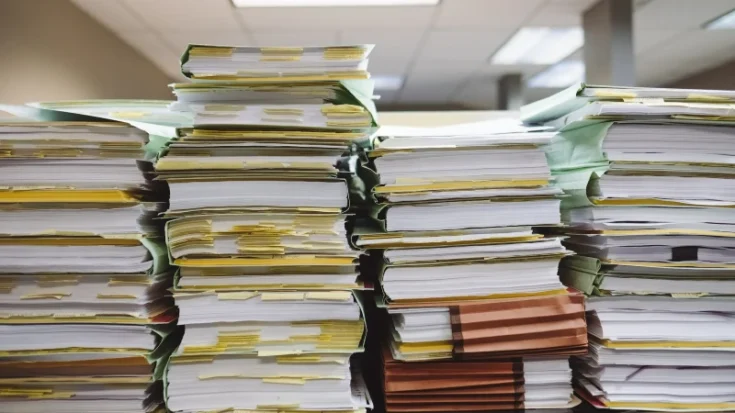Disclosure: This post may contain affiliate links, meaning we get a commission if you decide to make a purchase through our links, at no cost to you. Please read our disclosure for more info.
Last Updated on January 20, 2024 by Work In My Pajamas
Documents are a necessary evil of business. Everything from contracts and invoices to tax documents must be generated and filed for future reference. In the past, that meant businesses printed reams and reams documents and had to find a place to put them. The paperless office can change all of that.
In This Post:
1. Saves Space
Every inch of space an organization devotes to storing documents is space not being used for achieving the organizations day-to-day goals. Scanning and storing documents, either on your own server or in the cloud, lets you free up space you otherwise need to fill with bulky file cabinets. In document-intensive industries, the sheer volume of files sometimes requires off-site storage. The paperless office lets you cut that physical storage cost as a line item on your budget.
2. Boosts Efficiency
Misplaced files can lead to hours of wasted employee time as they search for important documents. Digital files, even if they get stored in the wrong place, are easily found with global search functions. The time employees used to spend looking for documents now gets spent on productive activity. Companies can also go paperless more easily now with technology like electronic signature software. Electronic signature software can also boost efficiency by cutting document signing time down to minutes.
3. Around the Clock Access
Paperless offices create the opportunity to access your data and files around the clock, on a virtual private network or through your cloud service provider. That means that if an employee is on a business trip overseas, there is zero lag time in accessing pertinent information. It can be the middle of the night at the office and they can still show data to a client in South Korea.
4. Enhanced Security
The threat of employees stealing information is an increasing concern for all businesses, as more and more businesses hold a range of sensitive customer information, such as credit card numbers. Digital documents lend themselves to structured access by assigning access rights to company users. Digital documents also improve disaster recovery efforts, particularly if the documents are stored in the cloud.
5. Environmental Friendly
A paperless office lets an organization dramatically reduce its paper and ink consumption, which saves trees and reduces the amount of volatile organic compounds put into the environment by printer ink. Going paperless also makes for an element of good public relations when undertaken as part of green initiative in the workplace.
The paperless office is a way for organizations to achieve several goals. It reduces operating costs, while it boosts productivity and efficiency. Data is more secure and more reliably available. The paperless office is also more environmentally-friendly.






Nice article! Thanks for the post Lizzie!